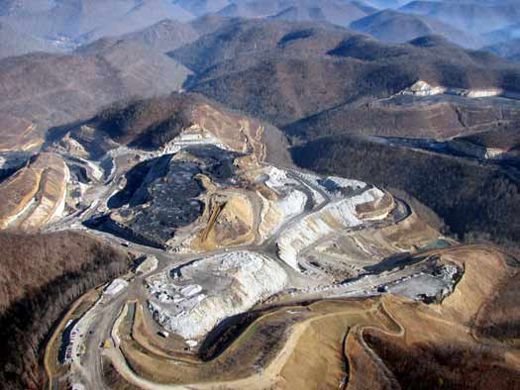Earth Day Guest Article: Plastic Beads and Sugar Water
Apr1

Happy Earth Day, 2010!
Here at ScriptPhD.com, we pride ourselves on being different, and we like thinking outside the mold. So for Earth Day 2010, we wanted to give you an article and a perspective that you wouldn’t get anywhere else. There is no doubt that we were all bombarded today with messages to be greener, to use less, to be more eco-conscious, and to respect our Earth. But what is the underlying effect of advertising that collectively promotes The Green Brand? And has the Green Brand started to overshadow the very evil—environmental devastation—it was meant to fight to begin with? What impact does this have on the future of the Green movement and the advertising agencies and media that are its vocal advocates? These are questions we are interested in answering. So when we recently met Matthew Phillips, a Los Angeles-based writer, social media and branding expert, and the founder of a new urban microliving movement called Threshing, we were delighted to give him center stage for Earth Day to offer his insights. What results is an intelligent, esoteric and thoughtful article entitled “Plastic Beads and Sugar Water,” sure to make you re-evaluate everything you thought you knew about going green. We welcome you to contribute to (and continue) the lively conversation in the comments section.
Selling Science Smartly: Green Advertising with RIESTER
Apr2

Much of today’s messaging about the environment, green initiatives and ways for the public to make a difference physically and fiscally are centered around media and advertising. To wit—even amid the deepening recession, one market has seemed to defy the economic downturn: green and environmentally-friendly product launches. Sadly, however, a large and growing subset of the eco-conscious creative collective is enveloped in hyperbole and hubris, a term the industry has labeled “greenwashing” that we will discuss in much greater detail in another article. It was natural then, that as part of our Earth Week coverage, ScriptPhD.com undertook green advertising as part of our continuing “Selling Science Smartly” series. Here, we profile a case study of several impressive (and effective) campaigns by the West Coast-based RIESTER, including work on recycling, clean air, and the first fully-integrated municipal sustainability campaign in the US. We also had an opportunity to speak with RIESTER’s executive team, who provided insights into their creative strategy, why green advertising is more challenging than ever before, the crucial importance that interactive played in their success, and why every agency should be blogging more.
Earth Week REVIEW: DisneyNature’s Oceans
Apr0

Oceans film poster and associated images ©DisneyNature Films, all rights reserved.
Happy Earth Week 2010, everyone! Here at ScriptPhD.com, we have devoted a number of articles to environment, sustainability and eco-awareness as part of our continuing “It’s Not Easy Being Green” series. This year, in celebration of the 40th anniversary of Earth Day, we are devoting the entire week to articles, interviews and profiles of companies, individuals and content that raises awareness of sustainability efforts and new ideas for the green science revolution. Because water lies at the heart of most modern environmental crises, we kick off Earth Week with CaptainPlanet’s review of the stellar new DisneyNature documentary Oceans, a truly spectacular oeuvre that celebrates the majesty of our most important and delicate resource. We also include a number of practical, easy things you can do right now to make a difference globally by acting locally. For our Oceans review and to find out what you can do to help protect our Earth’s water supply, please click the “continue reading” cut.
It’s Not Easy Being Green: Mountaintop Removal
Feb0

An Appalachian mountain that has been decimated by coal mining.
One of the most pressing issues of our time is how and where we are going to get sustainable energy for a global population with a rapidly rising standard of living and the consumption that this entails. Approximately 10% of United States coal production [coal in general accounts for 40% of global electricity production] is procured through mountaintop removal, an environmentally-devastating extraction that literally involves blasting off (or removing) the top of a mountain to extract the coal inside. The practice gained popularity in the 1960s, when it started becoming too difficult and too costly to extract coal from underground mines. In our continuing “It’s Not Easy Being Green” series, ScriptPhD.com’s eco-blogger Captain Planet talks about the documentary Mountaintop Removal, exactly what it entails, and why this process is so much more costly than the immediate energy gained from it. Please click “continue reading” for more.
REVIEW: The Cove
Dec1

The Cove movie poser (and all film images) ©2009 Lionsgate Pictures
One of our most exciting continuing projects here at ScriptPhD.com is our “It’s Not Easy Being Green” series of articles, highlighting the environmental and green issues and technology solutions facing our time (see our recent Blog Action Day post). Dedicated to bringing you more in-depth and frequent green content, we are thrilled to add a new ScriptPhD contributor, CaptainPlanet, who will write exclusive movie reviews and issues for “It’s Not Easy Being Green.” He joins us with a review of The Cove, a recent documentary garnering Oscar buzz, about the secret dolphin-hunting industry in Japan and its environmental and emotional impact. If you hadn’t previously known about how majestic and advanced dolphins really are, and how deleterious the depletion of fish is across the oceanic biosphere, watch this film. ScriptPhD.com review, discussion, and ways to get involved, under the “continue reading” jump.

















